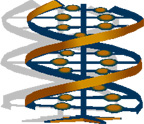 The UNMC Institutional Biosafety Committee (IBC) is responsible for reviewing all research involving recombinant DNA in compliance with the NIH Guidelines for Research Involving Recombinant DNA Molecules. Always consult the IBC Web site for the most recent information regarding recombinant DNA research at UNMC.
The UNMC Institutional Biosafety Committee (IBC) is responsible for reviewing all research involving recombinant DNA in compliance with the NIH Guidelines for Research Involving Recombinant DNA Molecules. Always consult the IBC Web site for the most recent information regarding recombinant DNA research at UNMC.
How do I know if my project must be registered?
Experiments that require IBC approval include those that involve:
1) the deliberate transfer of a drug resistance trait to microorganisms that are not known to acquire the trait naturally;
2) the deliberate transfer of recombinant DNA or DNA or RNA derived from recombinant DNA into human research participants [human gene transfer];
3) the deliberate formation of recombinant DNA containing genes for the biosynthesis of toxin molecules lethal for vertebrates at an LD50 of less than 100 nanograms per kilogram body weight;
4) using risk group (RG) 2 or RG-3 agents as host-vector systems;
5) the cloning of DNA from RG-2 or RG-3 agents into non-pathogenic prokaryotes or lower eukaryotic host-vector systems;
6) the use of infectious or defective RG-2 or RG-3 agents;
7) whole animals in which the animal’s genome has been altered by stable introduction of recombinant DNA or DNA derived into the germ-line [transgenic animal];
8) viable recombinant DNA-modified microorganism tested on whole animals;
9) genetically engineered plants by recombinant DNA methods;
10) more than 10 liters of culture in a single container;
11) formation of recombinant DNA molecules containing more than two-thirds of the genome of a eukaryotic virus.
The next IBC update in UNMC Today will address determination of risk groups and how that is related to IBC registration.